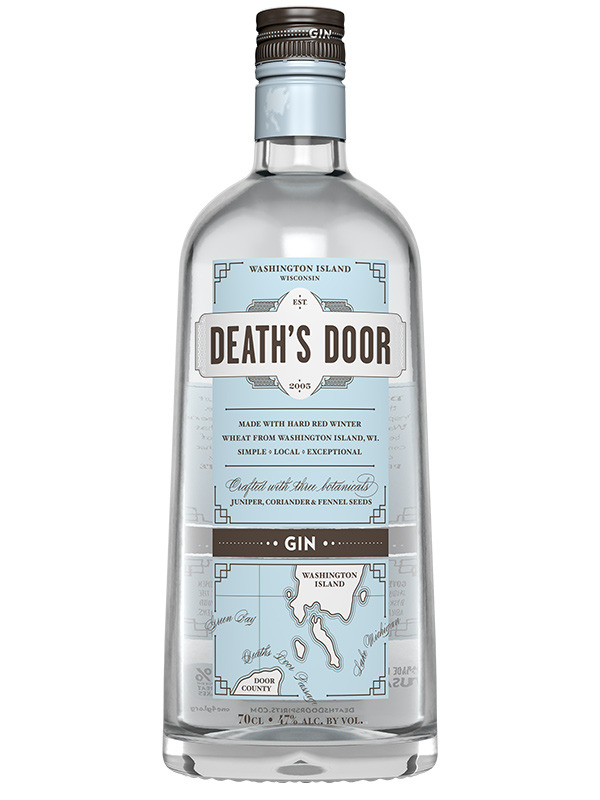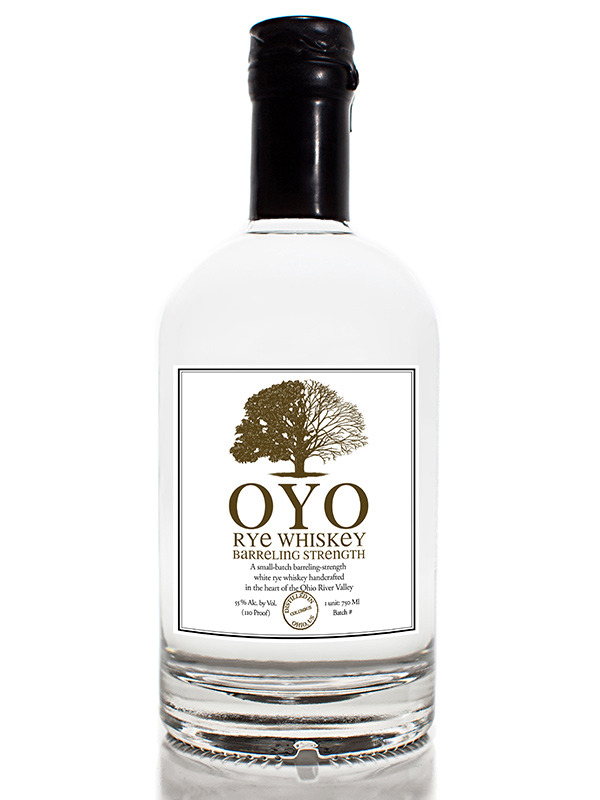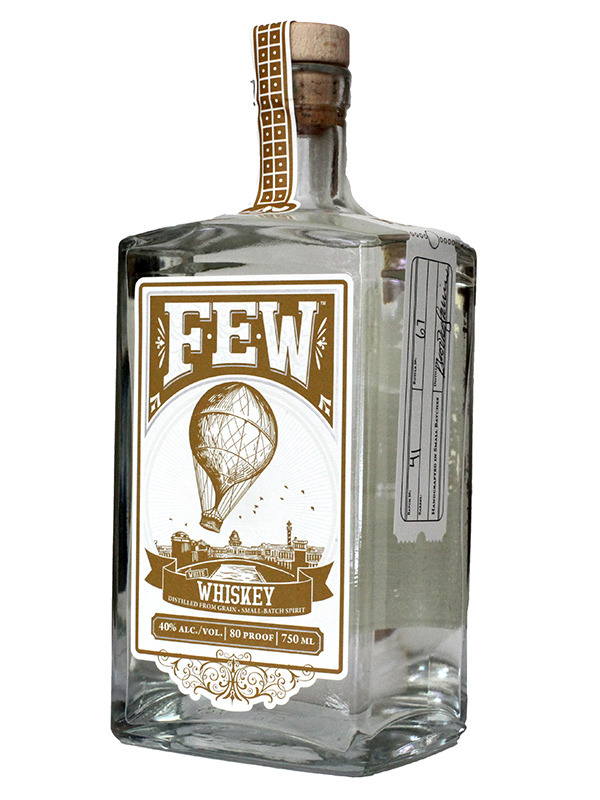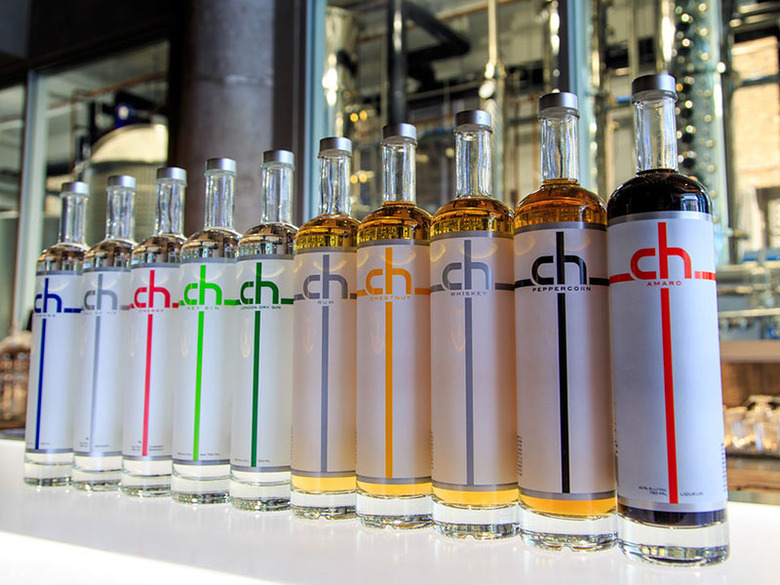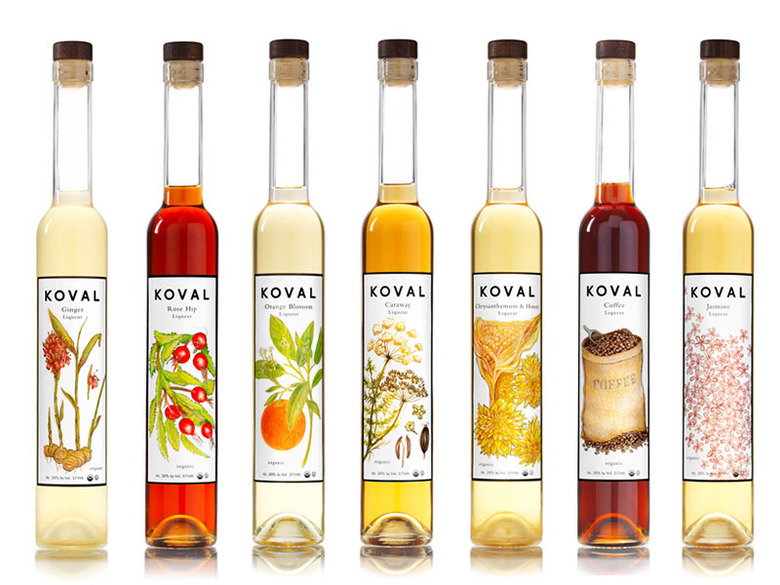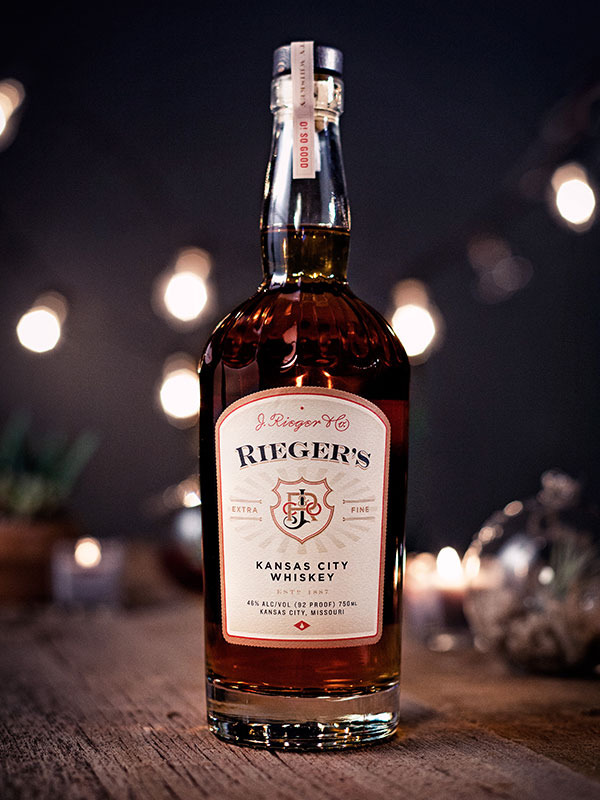The Best Midwestern Spirits: CH Distillery, KOVAL And More
Jim Meehan's picks for up-and-coming Midwestern distilleries
This July, Tasting Table celebrates the great state of American food and drink.
Last month, I stepped out of the Chicago Athletic Association (easily the coolest new hotel in the country) onto Michigan Avenue and gazed over a monolithic Jaume Plensa statue at the carefully curated grounds of Millennium Park and realized Chicago is no longer America's "second city." In little more than the time it's taken New York City to repave Houston Street, Chicago's Loop and surrounding neighborhoods have metamorphosed into an international playground that nearly netted the 2016 Olympics—and stole both the James Beard Awards and the NFL Draft from Manhattan this year.
Chicago's pioneering spirit is driven in part by its world-class bars and restaurants, and as we've seen along the coasts, the bartenders and chefs leading the charge are featuring ingredients from their backyards on the plate and in the glass. Perhaps their proximity to America's legendary bourbon producers in Kentucky has played a factor for up-and-coming Midwestern craft distillers, such as KOVAL Distillery, FEW Spirits, Middle West, CH Distillery, Death's Door and the newly reopened J. Rieger & Co., which has distinguished its grain-based spirits from the big brands by carefully considering Midwestern culture and history before creating new products that are changing the spirits market at large. There are good things brewing on the Midwestern craft distillery scene—and it's worth checking out for connoisseurs and casual drinkers alike.
 A lineup of J. Rieger & Co.'s spirits | Photo: Samantha Levi Photography
A lineup of J. Rieger & Co.'s spirits | Photo: Samantha Levi Photography
Why are these distillers producing some of the best spirits in the country right now? Chicagoland distiller Paul Hletko of FEW credits the proximity to the farms they work with, while Wisconsin-based Death's Door founder Brian Ellison champions real estate: "We talk about our families and our football teams here, not housing prices," he says. In Downtown Chicago, the cost of doing business and acquiring the manufacturing space needed to stay afloat in the spirits business is more challenging, but KOVAL's Sonat Birnecker wouldn't have it any other way. She says, "There's great pride in Chicago," and while she's still looking for one space to unify the three facilities she's working out of now, she's confident local developers will help her find a home for her growing company.
Space is one advantage each of the distillers I spoke to mentioned, and it occurred to me that critical "space" has helped each of them blossom into the dynamic distilleries they are today. Though East Coast outfits like Tuthilltown and New York Distilling Co. thrive in the backyard of America's media capital, the bright lights don't mature whiskey any faster or give distillers needed time to hone their craft. The pressure to succeed in today's crowded craft marketplace when every move producers make is criticized in the media gives Midwestern distillers time to realize their brand's potential.
 The bar at CH Distillery | Photo: Courtesy of CH Distillery
The bar at CH Distillery | Photo: Courtesy of CH Distillery
Death's Door Spirits
Founder Brian Ellison named his company after the passageway between the Door County peninsula and Washington Island, where he sources botanicals for his flagship gin. In addition to the white whiskey and vodka, the distillery produces Wondermint peppermint schnapps and Kringle Cream liqueur under Nordic Distillers to delight sweet-toothed Wisconsinites and Badger State expats abroad.
Middle West Spirits
Cofounders Brady Konya and Ryan Lang are in the midst of a privately funded multimillion-dollar expansion of their distillery, which will include a dynamic visitors center and allow them to expand production of their innovative whiskeys and singular OYO vodkas. Using a terroir-driven wine-making approach, the duo utilize a "wine story" throughout their marketing to appeal to the culinary-minded craft marketplace.
FEW Spirits
FEW stands for Frances Elizabeth Willard, the famed temperance advocate who hailed from Evanston, Illinois, and its founder Paul Hletko produces award-winning gins, bourbon and rye whiskey from locally sourced grain. Everything is fermented and distilled in-house—a particular point of pride at a time when so many other "craft" distillers merely rectify (redistill) neutral spirit purchased from larger distillers.
CH Distillery
Named after the two primary compounds in beverage alcohol, carbon and hydrogen, CH is a working distillery and craft cocktail lounge and event space that's open for tours on Tuesdays and Thursdays and drinks Tuesday through Saturday in Chicago's West Loop. The products are available only in Illinois for now, but founder Tremaine Atkinson is expanding the production capacity to grow the brand.
KOVAL Distillery
Koval, which means "blacksmith" in several Eastern European languages and "black sheep" in Yiddish, was founded in 2008 by third-generation Austrian distiller Robert Birnecker and has wife, Sonat. In addition to opening the first new distillery in Chicago since the mid-1800s, Robert and Sonat have educated more than 3,000 people in their workshop and have consulted with 90-plus distilleries. They distill a wide range of spirits from locally sourced ingredients but are focused on their organic, "heart cut" whiskeys and dry gin.
Find online and brick-and-mortar retailers of KOVAL spirits.
J. Rieger & Co.
After meeting the great-great-great grandson of the namesake of his beloved Rieger Hotel Grill & Exchange in Kansas City, mixologist Ryan Maybee partnered with him to bring Jacob Rieger's historic spirits company back to life. They released an innovative blended whiskey in November of 2014 and just plucked Tanqueray's longtime master distiller, Tom Nichol, from retirement to develop their gin.
The other advantage I'd give them is the people. I spent nearly five hours on the phone with the founders of each distillery and would have been invited for dinner if I was in town. Hospitality and hard work are cornerstones of the Midwestern work ethic, which derail any notion of pretentiousness among its intelligentsia. (The Birneckers, for example, both hold PhDs and left academia to found their distillery.) As historic test markets for big companies, cities like Columbus, Ohio, are ideal for craft distillers like Middle West, which co-founder Brady Konya reminded me is bigger than Cincinnati or Cleveland, and the best at all things other cities don't care about (and football, too).
RELATED 6 Surprising Spirits Made in the USA "
The earnest approach that's pervasive among Midwestern craft distillers has fostered innovations rather than follow the trends: We're seeing this spirit in KOVAL's line of grain-to-bottle organic whiskeys from unusual single grains, such as millet and oat, and Middle West's unfiltered "character" vodka distilled from red winter wheat. At a time when big bold gins and rye whiskeys dominate the craft sphere, CH founder and distiller Tremaine Atkinson takes pride in his microdistillery's vodka, which is distilled from scratch instead of sourcing neutral grain spirit from big distillers and rectifying it as so many other "craft" distillers do.
Thanks to licensing restrictions, CH must produce every spirit it serves in its bar (which is attached to the distillery), so Atkinson has collaborated with experts all over town to build a range, which is only available in-house and select bars across the city. And CH isn't the only bar in the game—Ryan Maybee of Manifesto and The Rieger Hotel Grill & Exchange just released a whiskey named after the restaurant he opened in a former hotel in Downtown Kansas City, Missouri. It's a unique combination of rye and corn whiskeys with oloroso sherry that hearkens back to the whiskeys bottled around the turn of the 20th century.
Having just launched in November of 2014, the whiskey is bottled under the historic J. Rieger & Co. brand until the spirit Maybee's distilling now is fully mature. Thankfully, the brilliant bottlings being released by craft distillers all over the Midwest will buoy his efforts in the meantime.
Click through the slideshow for more details on each of my picks and why you should invest in a few Midwestern bottles of your own.

